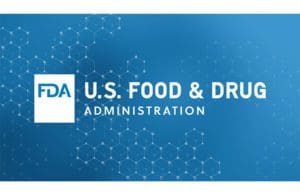 The FDA today released draft guidance designed to make it easier for researchers to seek approvals for drugs designed for individuals with severe genetic diseases.
The FDA today released draft guidance designed to make it easier for researchers to seek approvals for drugs designed for individuals with severe genetic diseases.
The draft guidance focuses on investigational new drug submissions for antisense oligonucleotide (ASO) products because these are the most common drugs being developed for severely debilitating or life-threatening genetic diseases. ASOs target messenger RNA and may help people for whom there is no adequate available therapy and who need prompt medical intervention because of rapid disease progression.
The draft guidance also targets academic investigators who may be less familiar with FDA regulations, policies and practices, and less experienced than biopharmaceutical or pharmaceutical companies in working with the agency. It includes information on:
- The approach to obtaining feedback from the FDA.
- The expectations and process for making regulatory submissions to the agency.
- Recommendations about the requirement for Institutional Review Board (IRB) review of the protocols within the guidance.
- Information on how to obtain informed consent.
“We also are optimistic that development of these individualized drug products may spur gene sequencing that leads to the development of additional individualized drug products for the same disease (though perhaps caused by a different mutation),” said Dr. Patrizia Cavazzoni, acting director of the FDA’s Center for Drug Evaluation and Research, in a news release. “For this approach to drug development, we need to determine — collectively — how to effectively bring these drug products to all who need them. If we have the scientific ability to develop drug products for these rare diseases, we need to find a way to bring them to patients while ensuring there is the right balance of risk to benefit. This guidance, which provides clarity on the early development and IND submission process, is the FDA’s first step in working with those who are developing these individualized drug products.”
You can read the draft guidance here.
Filed Under: Drug Discovery and Development, Genomics/Proteomics, Orphan Drugs



